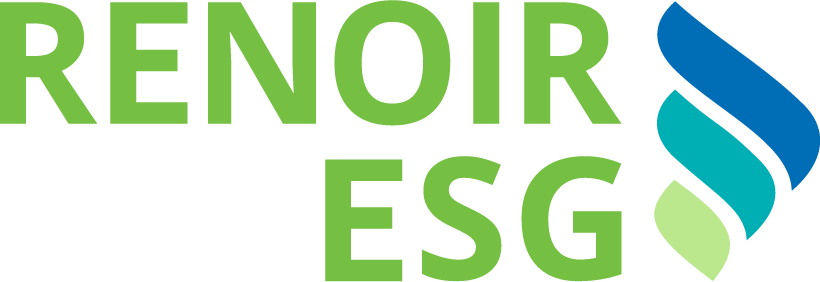Sustainability & Integrated Reporting
Corporations that actively manage their ESG risks and opportunities are bound to be at the forefront of their industries.
What We Offer
Sustainability Reports communicate, to stakeholders, a corporation’s non-financial performance and measure the economic & ESG impact caused by their business activities. These ESG metrics are becoming increasingly important in assessing a corporation’s resilience, ability to plan for the future and therefore respond to emerging environmental and social issues, which will undoubtedly impact long-term value creation. It is clearly no longer enough to only produce financial statements as they only tell one part of the story. Sustainability reports bring to life a corporation’s sustainability journey, and although each journey is unique, it is essential for all to have a clear sustainability strategy with a defined set of goals and objectives, and that disclosure is done according to credible and widely used standards & frameworks.
Integrated Reports focus on a corporation’s business model and its ability to generate sustainable value. The meaning of value creation within the international integrated reporting framework goes beyond only financial wealth (which accommodates the needs of capital providers), but rather includes aspects such as the value of employee skills, intellectual capital, the supply chain, the environment, and the community’s well-being, amongst others, to the organization’s business model (which in this case accommodates all stakeholders). In addition, Integrated Reports encourage ‘Integrated Thinking’, which means having a full, holistic, and forward-looking consideration of the business model, to include all the organization’s inputs, outputs, relationships and resources, and in turn ensuring long-term sustainable value creation.
Our sustainability and integrated reporting services follow best practices and adhere to the most stringent and widely used international standards including the GRI Standards, International Integrated Reporting Framework, SASB, and others.
The main benefits of Sustainability Reporting:
- Align with international frameworks and local
regulatory guidance
- Build trust in your brand and improve corporate reputation
- Respond to investors and stakeholder demands and engage with them
- Provide access to better quality and quantity of information
- Enhance understanding of risks and opportunities
- Reduce costs and improve efficiency
- Benchmark and assess sustainability performance
- Mitigate (or reverse) negative environmental, social, and governance impacts
Additional benefits for Integrated Reporting:
- Show the complete ‘value’ of an organization to
stakeholders, which the financial statements alone cannot portray
- Provide the ability for management, employees, and all other stakeholders to have a more holistic picture of the organization, in the context of long-term value creation
- Strategic and operational decisions are more carefully considered
- Present a more forward-looking long-term view of corporate performance
- Consequential breakdown of ‘silo mentality’ within an organization
- Demonstrate how the organization’s business model responds to the risks and opportunities it faces
Investors and ESG rating agencies are already analysing the ESG performance of listed corporations based on publicly available data.
Understand where the company stands in its sustainability journey
Advise on Sustainability Strategy if required. Embedding sustainability within a company’s overall strategy is a step by step process
Set a clear sustainability reporting strategy with a clear set of objectives
Decide on deliverables and standards to use
Form the team that will own the project, communicate internally and set clear deadlines
Education and awareness sessions are a necessity, and form an integral part of our services. Perform stakeholder engagement and materiality assessment
Issue the
report
Consistency / timing is essential
External assurance
Benchmark versus peers / norms, monitor trends
Adopt, improve and progress
The main benefits of Sustainability Reporting:
- Align with international frameworks and local
regulatory guidance
- Build trust in your brand and improve corporate reputation
- Respond to investors and stakeholder demands and engage with them
- Provide access to better quality and quantity of information
- Enhance understanding of risks and opportunities
- Reduce costs and improve efficiency
- Benchmark and assess sustainability performance
- Mitigate (or reverse) negative environmental, social, and governance impacts
Additional benefits for Integrated Reporting:
- Show the complete ‘value’ of an organization to
stakeholders, which the financial statements alone cannot portray
- Provide the ability for management, employees, and all other stakeholders to have a more holistic picture of the organization, in the context of long-term value creation
- Strategic and operational decisions are more carefully considered
- Present a more forward-looking long-term view of corporate performance
- Consequential breakdown of ‘silo mentality’ within an organization
- Demonstrate how the organization’s business model responds to the risks and opportunities it faces
Investors and ESG rating agencies are already analysing the ESG performance of listed corporations based on publicly available data.
Understand where the company stands in its sustainability journey
Advise on Sustainability Strategy if required. Embedding sustainability within a company’s overall strategy is a step by step process
Set a clear sustainability reporting strategy with a clear set of objectives
Decide on deliverables and standards to use
Form the team that will own the project, communicate internally and set clear deadlines
Education and awareness sessions are a necessity, and form an integral part of our services. Perform stakeholder engagement and materiality assessment
Issue the
report
Consistency / timing is essential
External assurance
Benchmark versus peers / norms, monitor trends
Adopt, improve and progress
- Align with international frameworks and local regulatory guidance
- Build trust in your brand and improve corporate reputation
- Respond to investors and stakeholder demands and engage with them
- Provide access to better quality and quantity of information
- Enhance understanding of risks and opportunities
- Reduce costs and improve efficiency
- Benchmark and assess sustainability performance
- Mitigate (or reverse) negative environmental, social, and governance impact
Additional benefits for Integrated Reporting:
- Show the complete ‘value’ of an organization to stakeholders, which the financial statements alone cannot portray
- Provide the ability for management, employees, and all other stakeholders to have a more holistic picture of the organization, in the context of long-term value creation
- Strategic and operational decisions are more carefully considered
- Present a more forward-looking long-term view of corporate performance
- Consequential breakdown of ‘silo mentality’ within an organization
- Demonstrate how the organization’s business model responds to the risks and opportunities it faces
Investors and ESG rating agencies are already analysing the ESG performance of listed corporations based on publicly available data.
Understand where the company stands in its sustainability journey
Advise on Sustainability Strategy if required. Embedding sustainability within a company’s overall strategy is a step by step process
Set a clear sustainability reporting strategy with a clear set of objectives
Decide on deliverables and standards to use
Form the team that will own the project, communicate internally and set clear deadlines
Education and awareness sessions are a necessity, and form an integral part of our services. Perform stakeholder engagement and materiality assessment
Issue the report Consistency / timing is essential
External assurance
Benchmark versus peers / norms, monitor trends
Adopt, improve and progress
Understand where the company stands in its sustainability journey
Advise on Sustainability Strategy if required. Embedding sustainability within a company’s overall strategy is a step by step process
Set a clear sustainability reporting strategy with a clear set of objectives
Decide on deliverables and standards to use
Form the team that will own the project, communicate internally and set clear deadlines
Education and awareness sessions are a necessity, and form an integral part of our services. Perform stakeholder engagement and materiality assessment
Issue the report Consistency / timing is essential
External assurance
Benchmark versus peers / norms, monitor trends
Adopt, improve and progress









